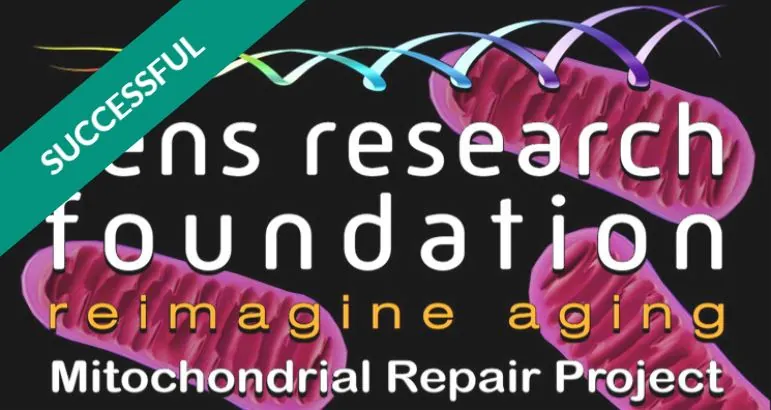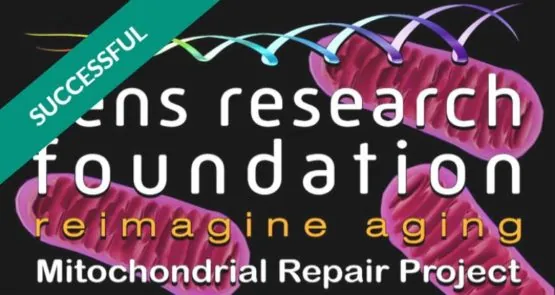The following is an update from MitoSENS scientist Dr. Matthew “Oki” O’Connor:
Hi, everyone! Long time, no update – my fault!
As you all saw, our manuscript that was supported by Lifespan.io donors was published last fall. Dr. Boominathan and I have been presenting our results at conferences around the world, and I can tell you that they have been very well received.
The second part of the project has been completed (testing a library of MTSes on ATP6), and that does not seem to have solved the problem of substantially increased ATP6 expression and import.
We have, however, learned more about the problem and have made progress on solving it. We’ve discovered that there was a problem at both the mRNA expression level and at the protein level.
We think we’ve solved the mRNA problem, but we’re still working on the protein problem. The mRNA solution is a bit of a long story, so I’m going to save the details for a future update, but it’s pretty cool.
Additionally, it’s been an exciting summer. The highlight of our summer is always the SRF Summer Scholars program, in which talented undergraduate biology students join our various projects for 12 weeks.
This summer has been twice as special for the Mito project because we got not one but two amazing interns to pioneer new work. This is due to a timely grant from Michael Antonov (one of the visionary co-founders of Oculus) that allowed us to expand operations this summer to push a new project that I’ll talk about in my next update. But first…
Optimizing the Allotopic Expression of ATP6 to Mitochondria in Mutant Cells
Jasmine Zhao joined us this summer from UCLA, where she will be a senior this fall. In Jasmine’s words:
This summer, my project will be conducted under the mentorship of Dr. Amutha Boominathan and Dr. Matthew O’Connor at the SRF Research Center in Mountain View. The goal of this project is to design and test different constructs that can potentially improve the allotopic expression of ATP6 to mitochondria in mutant cell lines.
Mitochondria are double-membrane bound organelles that provide energy in the form of ATP to power the biochemical reactions of a cell. Unlike other organelles, however, mitochondria have their own DNA separate from the nucleus, and 13 out of those 37 genes encode for oxidative phosphorylation complex proteins.
Due to possible leakage of the high-energy electrons of the respiratory chain, which results in the formation of reactive oxygen species, the oxidative stress mitochondrial-DNA (mtDNA) is subjected to can lead to mutations, aging, and cell death. For instance, the ATP6 gene encodes for subunit a of the Fo structural domain of ATP synthase, also known as Complex V. The Fo structural domain is embedded in the inner membrane of the mitochondria and contains the membrane proton channel that allows for the synthesis of ATP.
Mutations of ATP6 have been implicated in different human diseases that affect neural development, vision, and motor movement, such as Leigh syndrome and Neuropathy, Ataxia, and Retinitis Pigmentosa (NARP).
Thanks
Oki
Want to know more?
You can learn more about this project at the SENS website here!




